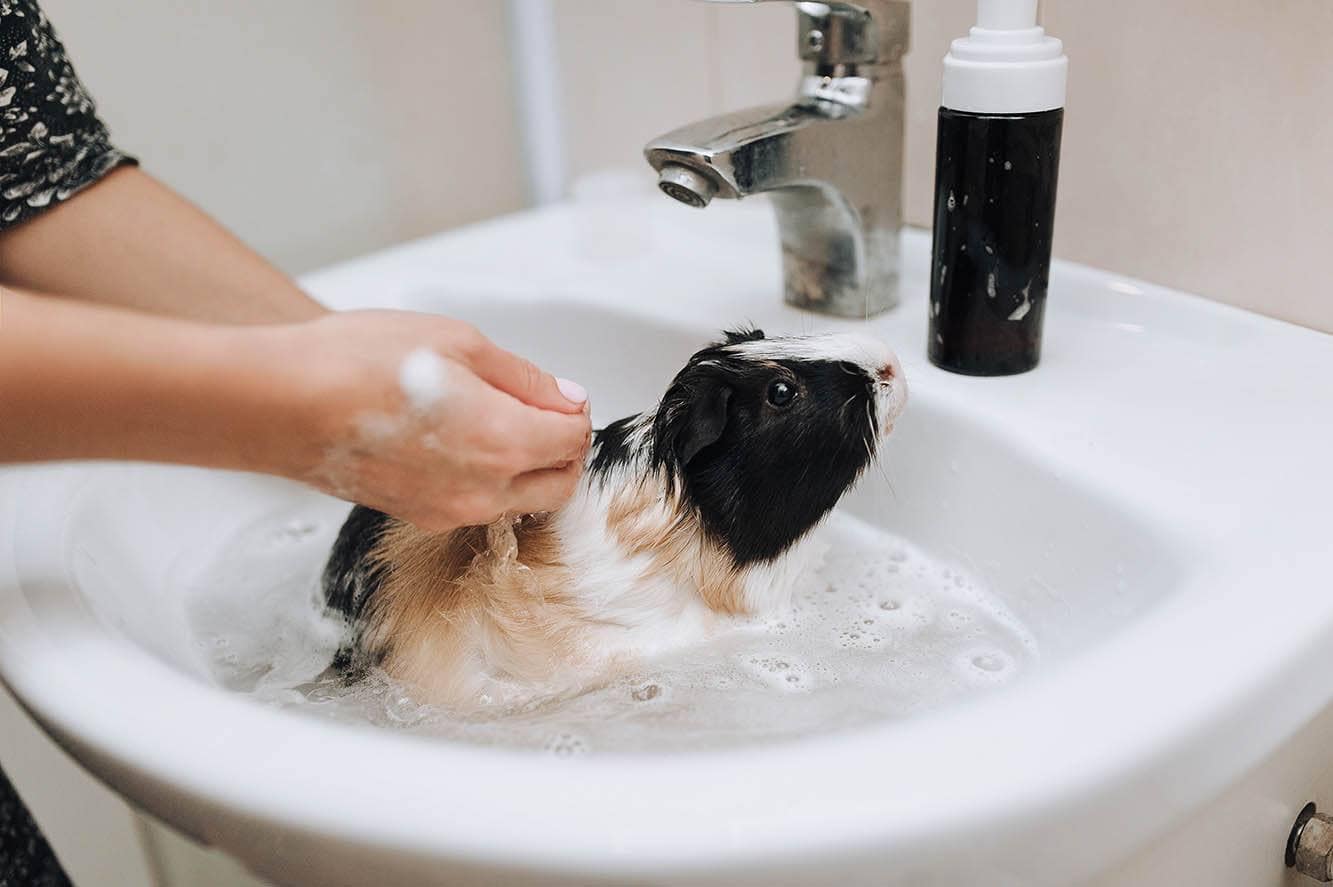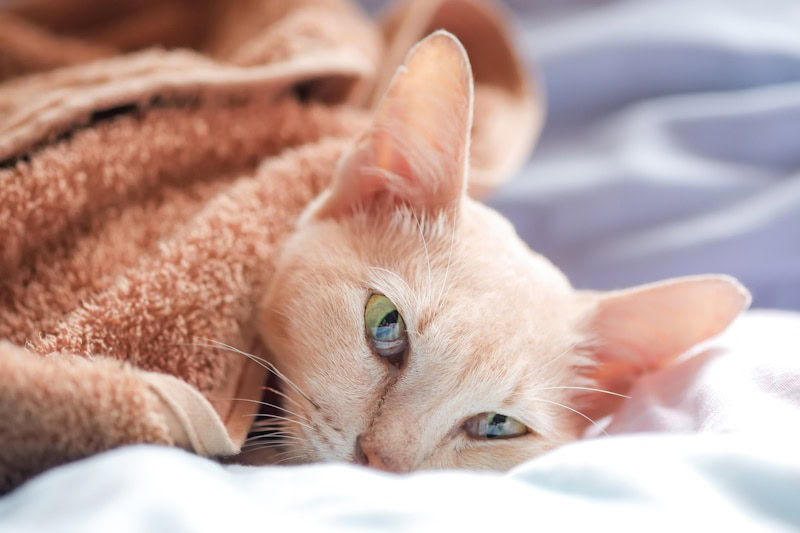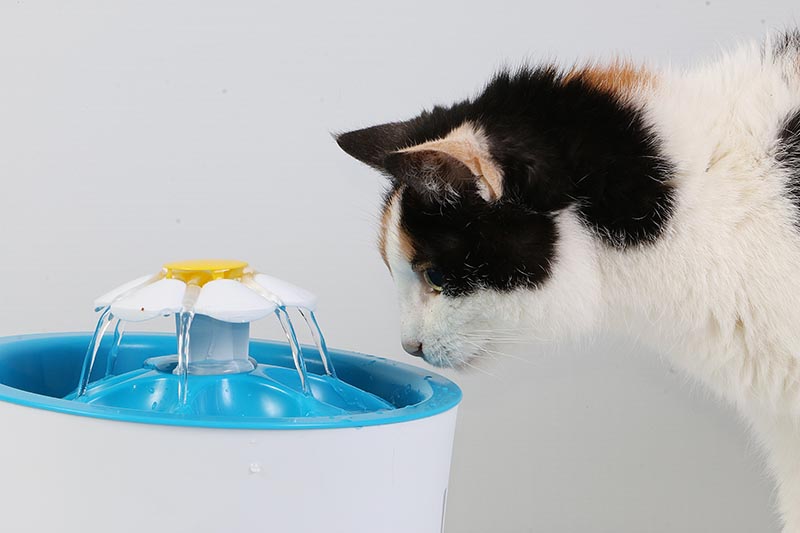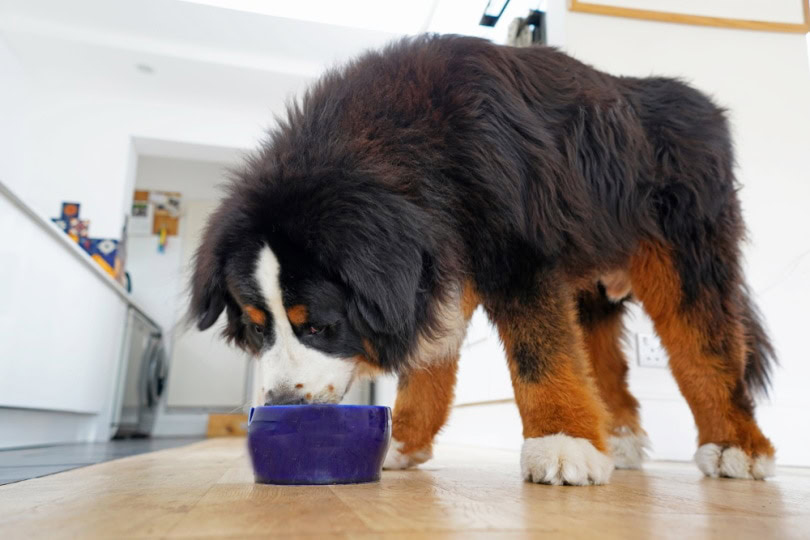VET APPROVED

The information is current and up-to-date in accordance with the latest veterinarian research.
Learn more »Click to Skip Ahead
Avoid Human and Baby Shampoo
Other Options and Substances to Avoid
What Kind of Shampoo Should You Use on Guinea Pigs?
What to Use If You Don’t Have Guinea Pig Shampoo
How Often Do Guinea Pigs Need Baths?
How to Bathe a Guinea Pig
Tips to Keep Your Guinea Pig Clean Between Baths
Guinea pigs have become extremely popular over the years, and many people have them as pets. If you’re a guinea pig owner, you are already aware of their cuddly nature. They are entertaining, fun to play with, and quite lovable.
Like with all other pets, you need to provide them with love and care, including feeding, maintenance, and hygiene. Many people are unsure what they need to use to wash a guinea pig. Commonly, these rodents are kept indoors due to their size, so they don’t get filthy often, but you may need to bathe them when they are exceptionally dirty or incapable of cleaning themselves. Regular baths are not recommended for guinea pigs because rodents are sensitive to temperature changes.
If you’re also a dog owner, you may have considered washing your guinea pig with dog shampoo. If that’s ever crossed your mind, we advise against it. Dog shampoo might be effective for cleaning, but your guinea pig can suffer from serious health issues. We talk more about this topic here and provide you with information on how to bathe your guinea pig safely.

Why Is Dog Shampoo Unsafe for Guinea Pigs?
Dog shampoo is specially made for canines and includes chemicals and substances good for dog skin and fur. Also, many of the shampoos contain anti-flea ingredients that could be deadly to a guinea pig. We strongly advise you to never use any other animal shampoo on your guinea pig because they are so small and sensitive.
The consequences might be minor, with just scratching and skin issues, or you could endanger the life of your little pet.
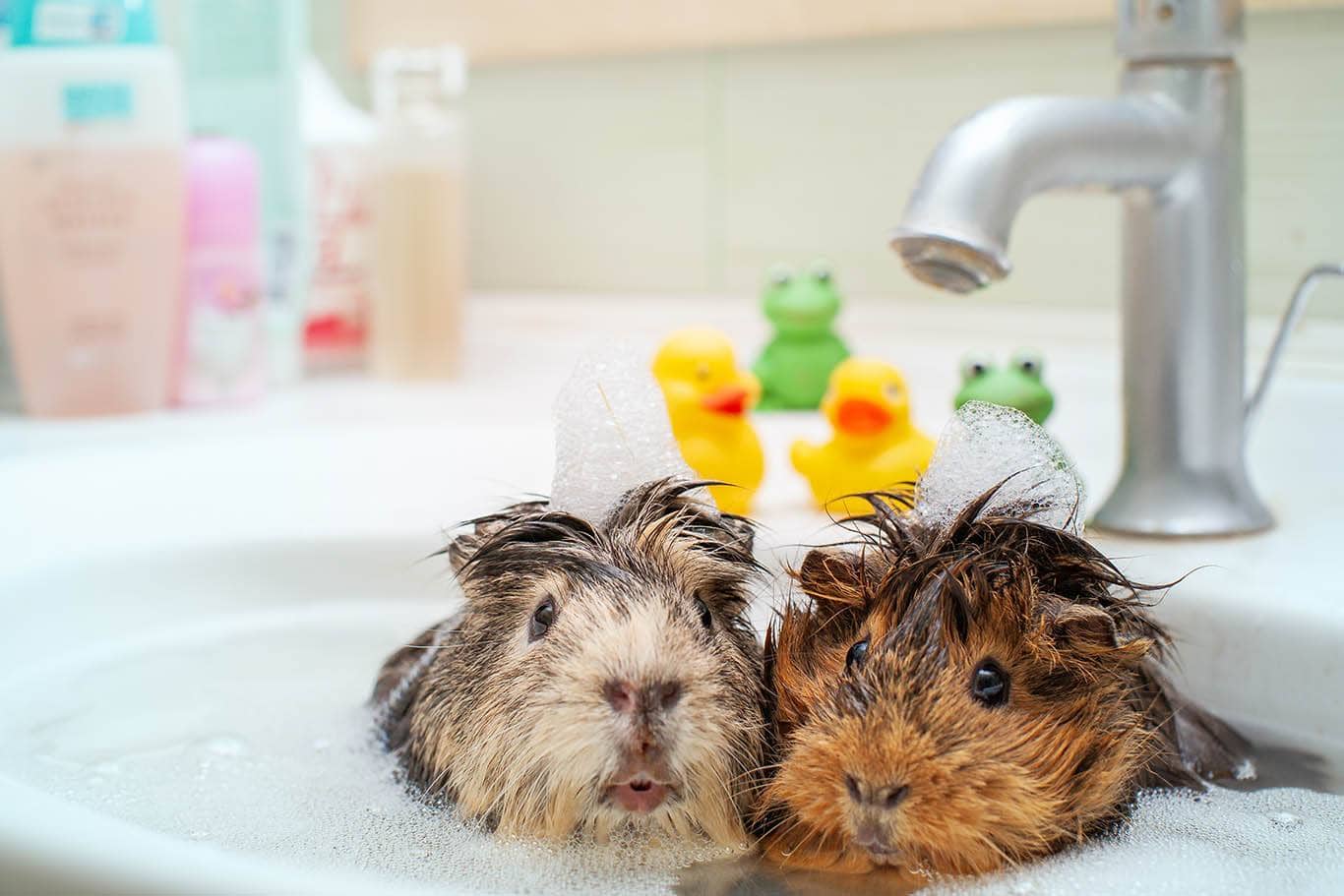
Avoid Human and Baby Shampoo
You should also avoid human shampoo. Our skin products have more substances and chemicals, and our skin pH is not the same, so human shampoo would likely harm your guinea pig. You should also avoid baby shampoo, even though it has fewer chemicals than standard human shampoo. Guinea pigs have sensitive eyes, so this shampoo could quickly damage their vision or even make them blind.
If you’re feeling desperate because you do not have any other products around, you could mix a couple of drops of mild baby shampoo with lukewarm water to wash your cavy. You could also take a small amount and test it out on your guinea pig’s skin to see whether there’s a reaction. That said, since this can be harmful, we suggest avoiding this method or consulting with your vet to verify if the product is safe to use.
Even if your vet says it’s okay, try not to make a habit of it because guinea pigs need appropriate care for their fur and skin.
Other Options and Substances to Avoid
Since guinea pigs are sensitive and their skin can easily become dry, there are substances you need to avoid to ensure that your cavy will remain healthy.
- Cedar oil
- Sulfates
- Parabens
- Phthalates
Also, stay away from any products with heavy fragrances since they can harm your guinea pig’s lungs and cause other issues.
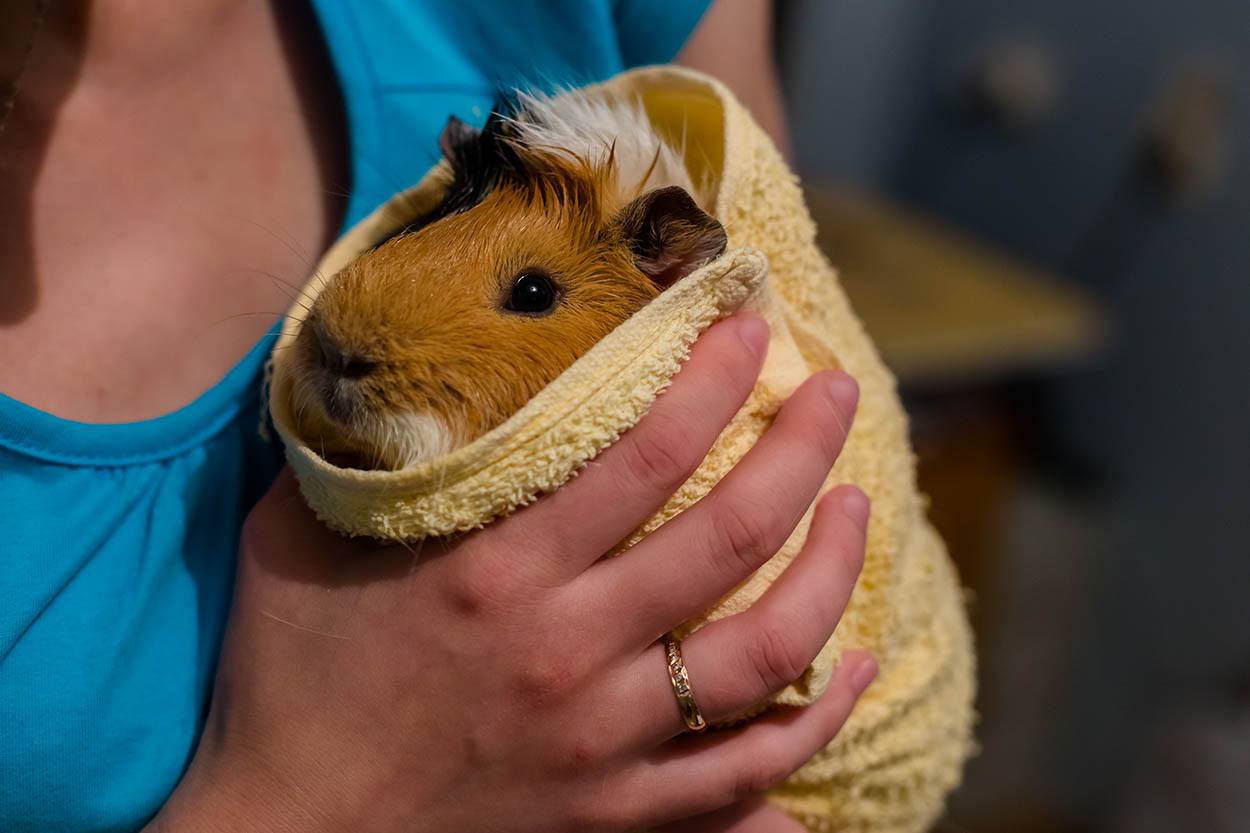
What Kind of Shampoo Should You Use on Guinea Pigs?
At pet stores, whether online or in person, you can find a lot of different critter shampoos or ones that have a balanced mixture of ingredients safe for all kinds of rodents, including guinea pigs. These products have substances that will reduce dryness, rashes, and skin conditions in your cavy.
So, you shouldn’t panic if you can’t find guinea pig shampoo when they need a bath. You can get safe alternatives that won’t irritate your guinea pig’s skin.

What to Use If You Don’t Have Guinea Pig Shampoo
There are many different, harmless ways to bathe your cavy while not damaging their skin or fur. Here are our top picks for safe alternatives for guinea pig shampoo.
Warm Water
Warm water is an excellent option for washing your guinea pig. It’s the simplest solution that wouldn’t have any harmful effects on your cavy. Also, warm water has no chemicals and won’t dry out their fur. That said, if your cavy is incredibly dirty, warm water might not be enough to remove all the filth.
Oatmeal Soap
Oatmeal soap is an excellent alternative for washing your guinea pig since it’s gentle and doesn’t contain harsh ingredients. You will need to dilute the soap and test it on your cavy’s skin to ensure that there are no reactions, though. Also, it might not remove all the dirt, but it’s a safe option that you can try out.
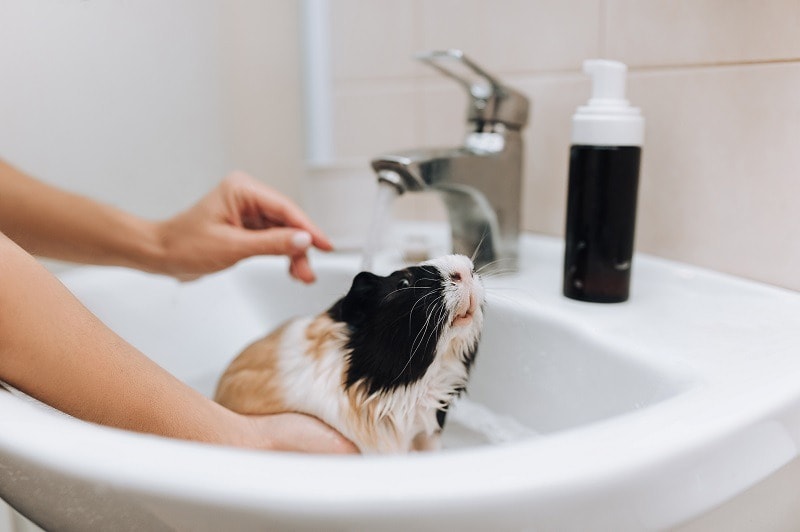
Pet-Friendly Wipes
Pet-friendly wipes are great when you need to quickly clean your cavy, as they do not contain harmful substances. Also, this is the fastest method to clean excess dirt on your guinea pig, though of course, pet-friendly wipes cannot permanently replace bathing.
Diluted All-Natural Apple Cider Vinegar
Another solution that you can use occasionally is diluted all-natural apple cider vinegar. This type of vinegar is scented and acidic, but it can be safe for your guinea pig once you dilute it, as long as you don’t use it frequently. It will have antimicrobial properties and reduce bad smells from your cavy.

How Often Do Guinea Pigs Need Baths?
Guinea pigs are excellent at cleaning themselves, so they do not need frequent baths. Only bathe your guinea pig if absolutely necessary. Too-frequent baths can make your pet prone to colds and dry out their skin. It’s best to keep their habitat as clean as possible to reduce the need for bathing.
- Your guinea pig has a stinky smell.
- Their fur is greasy.
- They’ve been playing outside.
If your guinea pig is older than 5 years, it might be more challenging for them to groom themselves, so you should bathe them more often. There are also occasions when you should never wash your cavy, which applies to those younger than 6 months and pregnant guinea pigs.
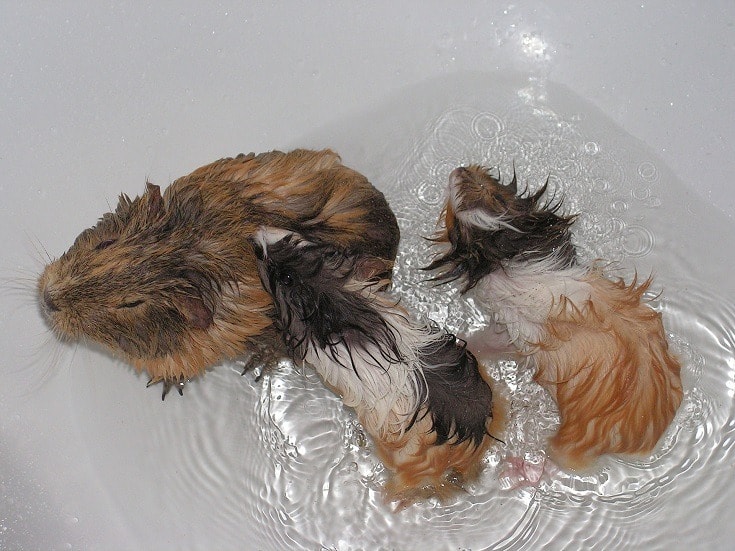
How to Bathe a Guinea Pig
Bathing a guinea pig can be a stressful experience because they’re not fans of bath time, so ensure that you calm down your cavy before bathing. Then, take a damp cloth and remove surface dirt from their skin.
It’s best to wash your guinea pig in a small container with around 2 inches of water inside. Ensure that the water is lukewarm but not too hot, as this could damage your guinea pig’s skin. Set a small cloth at the bottom of the container to prevent slippage. Slowly place your guinea pig into the water, and give them time to adjust to the temperature.
Always stay close so your guinea pig can feel comfortable in the water and develop a positive association with bath time. Gently scoop water with your hand or a small cup and rinse your cavy. Ensure that no water gets onto their face and into their ears. If their face is dirty, it would be best to wipe it with a damp cloth.
Since these rodents are sensitive and can easily become scared, try to be as gentle as possible. Take a small amount of guinea pig shampoo or a safe alternative, and gently rub it into your guinea pig’s skin. Rinse them again using a small cup or your hand until you’re sure there’s no more shampoo on their fur.
After you finish bathing your cavy, you should carefully wipe them with a clean, dry towel. After they’re dry, brush their fur. This step is essential if your guinea pig has long fur, since it can become tangled.
Tips to Keep Your Guinea Pig Clean Between Baths
It’s always good to take precautions to keep your guinea pig clean between baths. Since they spend most of their time in a cage, keeping it clean is crucial.
- Regularly change the guinea pig’s bedding.
- Sanitize their cage regularly.
- Clean the toys, food, and water bowls every couple of days.
- Spot clean the cage when needed.

Conclusion
Never use dog shampoo on guinea pigs. If you do not have appropriate shampoo in your home, you can use the safe alternatives that won’t harm your cavy. Ensure that you provide them with the needed care, and make bath time an enjoyable routine that won’t scare your guinea pig. By using harmful products, your cavy will be healthier, and their fur will always look clean and shiny.
Featured Image Credit: Shchus, Shutterstock
